Apps
Auto Added by WPeMatico
Auto Added by WPeMatico
Podz is the latest startup trying to solve the problem of podcast discovery, with backing from investors like M13, Katie Couric and Paris Hilton.
“Even though podcasts have gained a lot of momentum — there are 100 million folks in the U.S. who listen to podcasts — we still haven’t seen that crossover behavior, where audio becomes a part of everyday lives,” CEO Doug Imbruce argued. “We think that’s because the experience of discovering and consuming podcasts is ancient. It literally feels like browsing the web in 1997.”
Imbruce’s name may be familiar to longtime TechCrunch readers, as he was previously the chief executive at Qwiki, which won the Startup Battlefield at TechCrunch Disrupt in 2010 (Cloudflare was one of the runners up), then acquired by Yahoo a few years later.
By Imbruce’s own admission, Qwiki never quite lived up to his hopes for remaking online media consumption, but he said that its vision of “machine-created media” offered “a taste of the future” — a future that he’s hoping to help usher in with Podz.
The problem the startup aims to solve is pretty straightforward. Because podcasts often consist of 30 or 60 minutes or more of spoken-word audio, they’re difficult to browse, and when you discover new ones, it’s usually through word-of-mouth recommendations or clunky search tools.
While tools like Headliner make it easier for podcasters to promote their content with short clips on social media, Podz automates that creation process and makes those clips the centerpiece of the listening experience.
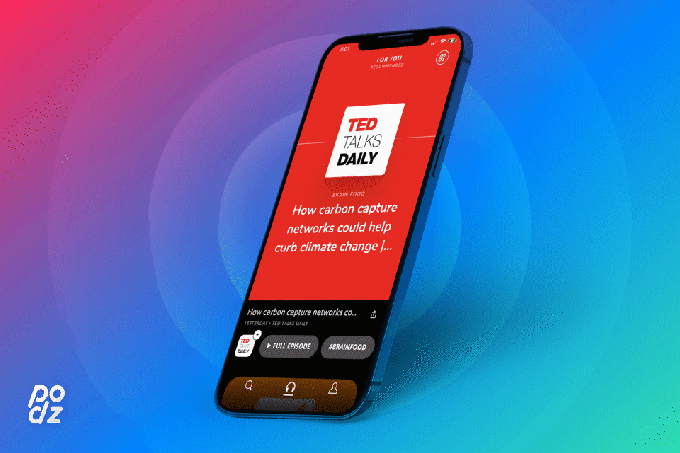
Image Credits: Podz
In the Podz mobile app, users browse what the startup calls “the first audio newsfeed,” consisting of 60-second podcast clips. These clips are designed to highlight the best moment from each podcast, making it easier to sample a much wider array of titles than the ones to which you currently subscribe. Each clip should stand on its own, but if you want to dive deeper, you can save the full episode for listening later.
These clips are created automatically, and Imbruce said “the beating heart of the Podz platform” is a machine learning model that “identifies the most engaging parts of podcasts.” The model was trained on more than 100,000 hours of audio, in consultation with journalists and audio editors.
For example, here are the clips chosen from the three most recent episodes of the Original Content podcast — our reviews of “Soul,” “The White Tiger” and “Bridgerton.” Each clip seems reasonably self-contained, and although I was a little dismayed to discover that they all focused on me (rather than my more eloquent co-hosts), a Podz spokesperson explained that’s because the app focuses on “the highest density speakers.”
The Podz newsfeed is personalized to your interests (and, if you choose, it also can draw on the podcasts you follow in Apple Podcasts and the accounts you follow on Twitter). Imbruce said it should become smarter over time as it observes listener behavior.
He added that the team is hoping to introduce more creative and monetization tools for podcasters over time: “We are really hopeful that we can both increase amount of audio being created by 10x and increase the monetization of audio by 100x.”
In addition to Imbruce, the Podz founding team includes CTO Seye Ojumu, Head of Design Rasmus Zwickson and iOS lead Greg Page. The startup has raised $2.5 million in pre-seed funding from M13, Canaan Partners, Charge Ventures and Humbition, as well as notable angel investors like Couric, Hilton (who’s launching her own podcast) and Mara Schiavocampo (The Trend Reporter).
“We are living in a golden age of audio, but only 1% of podcasts reach an audience of 5,000+,” M13 General Partner Latif Peracha told me via email. “Podz plans to grow the audience for existing audio but the real focus will be on growing new audio by leveraging their creator tools. Already, the average podcast listener subscribes to seven podcasts but follows almost 30 on Podz. Early signals make us optimistic the team can build a transformative product in the category.”
Powered by WPeMatico
The pandemic has upended many aspects of urban life but perhaps the most visible upheaval is to citydwellers’ social lives, with curfews calling time on traditional night life across much of the Western world and social distancing putting a chilly spin on opportunities for getting together with people outside your usual circle. Who knew leaving the house was going to seem like such a mission?
Opportunities to escape the city entirely — such as by jetting off somewhere — remain severely limited or even impossible right now, depending on where you live. And for many urbanites COVID-19 may feel as if it’s turned the advantages of city living on its head, despite lockdowns generally not being as hard-line as they were at times last year and vaccines now (slowly) being rolled out.
Sharify is a startup that reckons it can help with the weird flatness of pandemic city living. It’s a real-time events app (iOS and Android) that wants to bring back a little of the serendipitous joy of urban living by making it easier to discovery things going on around you — maybe even just a few blocks away. To do this it’s combined real-time event listings with a map view (via the medium of emoji-style icons plus filters) to quickly and cheerfully surround you with stuff that’s happening in the vicinity.
Though the business idea predates COVID-19, Sharify isn’t blind to the changes wrought by the pandemic. And the app displays a star icon next to events that are deemed COVID-19 ‘safe’ — a subtle promotion meaning the organizer has measures in place to reduce the risk of contagion, such as controlling venue capacity, providing disinfectant hand gel and ensuring tables/seating are safety spaced. (Which may well be legal requirements for a venue to be open for business, of course.)
At the same time, the app lets users share their own meeting plan with other users — potentially encouraging a bunch of strangers to meet up to play some music or hang out in the park or whatnot — so its appropriateness for the pandemic moment in which we find ourselves does depend on how you use it.
It’s open to social swings or roundabouts, you could say. (And limits on when/how clubs and bars can open may well be pushing a socially oriented and app-savvy demographic toward alternative ways (and tools) to mingle with strangers.)
More broadly, Sharify invites users to rethink the concept of travel and trips — asking them to refocus their attention and energy on discovering entertaining things to do without having to go far or plan far ahead. Because, well, what else can anyone really do right now? Apart from stay at home ofc.
The app does have two ‘view’ modes: One for events geared towards locals and/or a dedicated ‘tourist’ view to cater to those wanting to do more typical sightseeing — though content for the latter is obviously thinner on the ground at the moment. (And, well, ‘tourism’ as a concept is starting to feel rather quaint and old-fashioned vs properly exploring your own backyard.)
Officially Sharify is launched in Barcelona, Madrid and New York City — but says it’s “expanding quickly” and touts being “present” in 25+ cities around the world (presumably with a lighter events cadence vs those three).
I tested the app in Barcelona and quickly found a bunch of local events that looked interesting — at least compared to another night of thumbing through the Netflix catalogue — from a Banksy art exhibition, to a stand up comedy show (in English!), lots of theatre, a bunch of markets, yoga classes and a skateboarding event all going on within, at most, a couple of miles and days from where I’ve been spending the vast majority of my time for, like, almost a whole entire year.
Just the act of seeing stuff still going on in a city which, frankly, hasn’t felt very familiar or open for much of anything for close to 12 months was a bit of an eye opener.
After so much time locked down indoors maybe we all need a bit of a nudge/visual reminder that life is still going on — and socializing is still possible (with appropriate safety measures and distancing) — beyond the front door and away from the Zoom screen (or any other screen tbh). Even if I’m not about to sign up for everything I spotted in the app. But feeling like I could is almost exciting enough.
As well as providing key details about each event (when, where, any website etc), Sharify lets you signal an intent to go that’s visible to other users by ‘joining’ an event. It also hosts per event chat where those who have joined are invited to “talk to people who join the plan” — which is another neat little nudge to get users excited about going to a local thing, maybe without their usual friend group in tow.
Sharify isn’t disclosing how many users it has but it says it has 100,000+ monthly event views (3K+ daily), and 5,000+ events every month. (On Google Play the app has had 10,000+ installs.)
Where users create their own plans to advertise to others it touts an impressively high “join” rate of 95%. (Albeit saying you’re going to something you found via an app isn’t the same as actually turning up.)
To encourage users to discover and attend others’ events, Sharify displays a smilie face on the map in locations where several people are up for ‘sharing plans’ — listing the number of people theoretically up for joining in stuff around there and nudging you to ‘create a plan in this area’ to tap into that potential guest pool.
It also lets you drill down to check out micro profiles of these (public) socially interested locals — displaying a first name, perhaps a photo and any ‘interests’ if they’ve chosen to select some from its curated lists of culture, hobbies, sports and social activities etc. (Happily there’s no option to message individual users via their profile so no fear of stupid in-app spam.)
Location-based and social sharing is not new, of course. Indeed, it’s an idea that’s been around the tech block so many times the sound of a ‘real-time events map’ probably triggers a fuzzy feeling of ‘haven’t I seen this before somewhere?’ The deja vu may be real but context is ever shifting, is the point. Or, to put it another way, here and now, in an open-ended pandemic, going about finding something to do probably looks and feels quite a bit different to how you did it, pre-March 2020.
Put simply: Best laid plans are toast. Friends who don’t live in the same city are likely reachable only on Zoom or by text. And at very least you’re dealing with hard limits on how far you can range for your entertainment in time and space.
Local and/or virtual is the new global, all of a sudden. So Sharify reckons its real-time events map is just the ticket/tonic in this curtailed context — by cheerfully surrounding you with nearby stuff to do. The 2017-founded startup says it’s been growing “despite” the pandemic.
“We’re stuck at home, and we saw all the Netflix series. Is there any plan near my home for this afternoon? Event agendas simply don’t work in this user case. That’s why we built a real-time map,” says co-founder and CEO Gemma Prenafeta. “And the problem we will face in some months from now: I’m not stuck at home anymore. Where do I find new events easily?”
“As Sharify is a collaborative platform, we let people share their own events for free, we scrape different event sources such as Google and Tiqets, and we highlight those businesses that want to promote themselves,” she adds, giving a succinct explainer on how the app populates the map view with stuff to do.
Social maps aren’t new, of course — and features like Snap Map, which was added to Snap’s social network via its acquisition of Zenly, certainly has a bit of overlap (while Sharify’s smiley octopus logo on a yellow background has more than a little of Snap’s ghost in look and feel), though Snap Map is more obviously focused on friends’ location and social sharing vs Sharify being about event discovery, first and foremost. (Friends may follow from this real-life socializing, is the suggestion.)
There are also event discovery network startups (like calendar-focused IRL). But, again, with such a glance-friendly map view, Sharify is paying closer attention to immediacy/hyper-local event discovery vs IRL — which pivoted to helping people surface virtual events as the pandemic shuttered lots of real world events last year and has since focused on building out its own social network.
“The ‘immediacy’ factor is key at Sharify, as you can see what’s happening, in real-time,” says Prenafeta. “We say going to a local event is a kind of ‘Local Trip’. Traveling before was about taking flights, now it’s about taking a Bird or a eCooltra to an event nearby.”
Whether mapping real-time events is a standalone business or a feature/tool that could just be added to a dominant platform/social network is perhaps a more pressing question for this fledgling startup. And it’s notable that tech (and mapping) giant Google added a ‘Community Feed’ to Maps late last year.
Facebook has also had an ‘Events Near Me‘ feature on its platform for years. Albeit, anything listed inside its walled garden has to contend with all the baggage Facebook brings with it. So an indie app with a fresh approach should have a chance to attract users who wouldn’t be caught dead on Facebook (even in a pandemic).
Sharify has certainly come up with a really effortless way to spark a sense of possibility — to feel like you can cut through the monotony of lockdown life — just by firing up a super simple overview of stuff going on around you.
It then layers on some more powerful tools that are designed to help you find others to do stuff with, which adds a subtle but maybe deeper hook in these socially distanced times.
“Life is still pretty locked down, and that’s why it’s more important than ever to know what’s open and what isn’t, close to our house,” suggests Prenafeta. And, well, it’s pretty hard to argue with that.
She’s looking beyond the pandemic too — back to more normalcy and anticipating helping local businesses announce their reopenings, once that’s possible. The team is “currently working on a seed investment round to prepare for the post-pandemic momentum”, she says.
So far the Barcelona-based startup has raised a pre-seed and an angel round led by IESE Group, per Prenafeta — with a total of €501,000 (~$600k) invested to date into what has turned out to be a contextually fresh twist on the old SoMoLo trend.
Powered by WPeMatico
Unless you’ve got someone’s Amazon Wish List, gift giving today can still be fairly difficult. You don’t necessarily know a friend or family member’s shipping address, their sizes or their particular tastes, at times. A new startup called Goody, backed by a recent $4 million fundraise, wants to help. Through its newly launched mobile gifting app, Goody lets you celebrate your friends, family and other loved ones with a gift or, soon, even just an “IOU” that lets them know you’re thinking of them.
To do so, you first download the Goody mobile app for iOS or Android, then browse across the hundreds of brands and products it offers. You also can filter these by occasion, like birthdays or holidays, or by a specific need, such as gifts to say congratulations or get well.
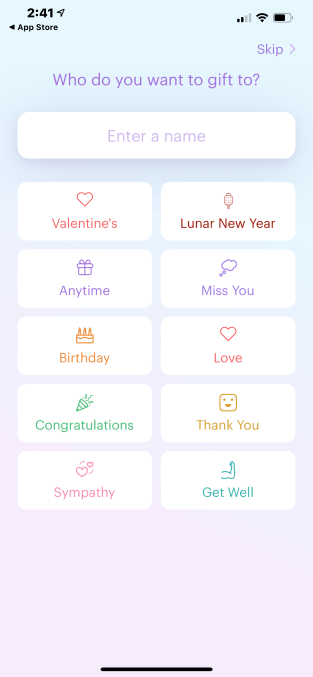
Image Credits: Goody
When you find a gift you like, you just enter the recipient’s phone number. Goody then sends a text that lets the recipient know that you’ve sent them something. The recipient clicks the link to accept the gift, which opens a website where they can see what you’ve selected, while also customizing any specific options — like their clothing size, color preferences or what flavor of cupcakes they’d like, for example.
Here, they also provide their shipping address, and the gift is sent. Afterwards, they can choose to send a thank you note, as well.
What makes this experience work is that — unlike some gifting startups in the past — Goody doesn’t require the recipient to download an app, nor do you need to know anything other than a phone number of the person you want to send a gift to.
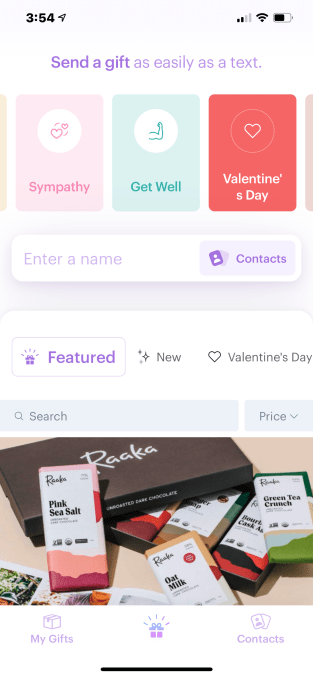
Image Credits: Goody
The idea for Goody comes from co-founder and serial entrepreneur and startup investor Edward Lando, whose prior company, YC-backed GovPredict, was recently acquired. He was also the first investor in Misfits Market, serves on the board at Atom Finance and is a managing partner at Pareto Holdings, based in Miami, where Lando now lives.
Joining him on Goody are Even.com tech lead Mark Bao and Lee Linden, who notably sold his prior gifting startup Karma Gifts to Facebook back in 2012.
Lando says he was interested in working on the idea because he loves to send gifts, but thinks there’s a lot of friction involved with the process as it stands today. Meanwhile, gifts that are easier to send, like gift cards, can lack a personal touch.
“The most important thing for us is for Goody to feel highly personal,” Lando explains. “If someone sends you something through Goody [it should feel like], wow, they really thought about me — they picked out something for me. We don’t want it to feel like someone is just sending you a dollar value,” he says.
The mobile app launched in mid-December and now works with a couple dozen brand partners. Many of these are in the direct-to-consumer space or are otherwise emerging companies, like non-alcoholic aperitif Ghia, workout experience The Class, pet company Fable, wellness company Moon Juice, Raaka Chocolate and others.

Image Credits: Goody
Goody’s model involves a revenue share with its partners, where its cut increases the more sales its makes on the partner’s behalf.
Brands are interested in working with Goody, Lando explains, because it can help them acquire new customers with little effort on their part.
“There’s so many direct-to-consumer brands these days — thousands of them — selling online — coffee, chocolate, all these cool things,” Lando says. “And for now, their only way of getting discovered is buying ads on Facebook. We’re another way for people to discover them. We’re like a giant shopping mall for people to discover these things,” he adds.
The app, however, wants to be useful to those who also just want to stay in touch with friends and family. On this front, it’s rolling out free gifts this week called “IOUs,” for telling someone you’re thinking of them — for example, by saying something like “I owe you dinner next time I’m in town” or sharing some other more symbolic gift.
The app will also later integrate a calendar that will help you track important occasions, like birthdays and other major life events.
Goody was founded in March 2020 and the app launched in mid-December of the same year. So far, around 10,000 gifts have been sent using its service, Lando says.
In addition to the holiday season, of course, the pandemic may have played a role in Goody’s early traction.
“I think the pandemic has been a big problem for everyone. And one of the things that people frankly don’t talk about enough, in my opinion, is the psychological toll the pandemic is taking on everyone…we are all creatures that enjoy social interaction. It feels good to see other people — especially the people you care about. And when you don’t, it really drains you of energy,” Lando says.
“This is obviously not the same as seeing people in person, but I do think that Goody is a nice injection of warmth and positivity…Everyone who uses it says they feel good after using it, which I think is rare,” Lando notes.
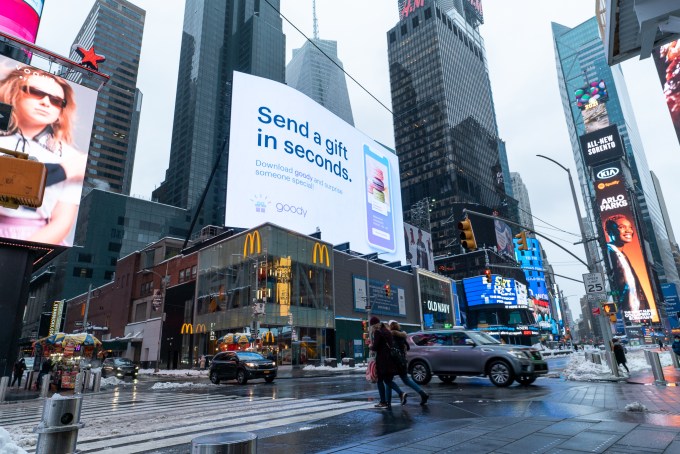
Image Credits: Goody ad in NYC
The startup, meanwhile, has raised a little more than $4 million in early funding from investors including Quiet Capital, Index Ventures, Pareto Holdings, Third Kind Venture Capital, Craft Ventures and the founders of Coinbase (Fred Ehrsam) and Quora (Charlie Cheever), among others.
Goody is a team of nine full-time employees, based in Miami and elsewhere, working remotely. Ahead of Valentine’s Day, the company snagged a spot on a Times Square billboard to advertise its app, in the hopes of gaining new users during one of the bigger gifting holidays of the year.
The app is available as a free download on the App Store and Google Play.
Powered by WPeMatico
The IPO frenzy is not letting up, Bumble informed the world this morning.
Per a new SEC filing, the dating company raised its target IPO price range, indicating that its previous attempt to quantify its per-share value was an undershoot. This means we’ll need to calculate a host of new valuations and revenue multiples for the company.
But more than that, we have a question to answer: Is Bumble aiming for a Match.com price, despite not being as profitable as its already-public rival? The last time we covered the pair, Bumble’s implied revenue multiples were discounted compared to Match, but with this new price, has the smaller company gained ground?
The Exchange explores startups, markets and money. Read it every morning on Extra Crunch, or get The Exchange newsletter every Saturday.
And if so, does it mean that we’re seeing more public market enthusiasm for private companies? We’ll find out.
When it comes to the frenetic demand for IPO shares from public investors, I am reminded of a particular Dilbert. In this particular strip, Wally gets fired and is then hired back as a consultant. People outside the company appear smarter, he said, so he’s now back and getting paid more money than before.
This, but for private companies going public. Some companies appear to have huge promise while private, only to fizzle slowly while public. Or they manage huge price gains during their IPO process, only to cede those wins after they have a few trading months under their belt.
Is that what’s going to happen with Bumble?
Bumble targeted a $28 to $30 per-share IPO price when it first set a range, implying a greater than $1 billion raise. Now the company is selling more shares at an even higher price. From 34.5 million shares to 45 million, and at a new $37 to $39 per share price range, Bumble could raise $1.66 billion to $1.76 billion in its IPO.
And that’s not counting its underwriters’ option of 6.75 million shares, which might bring its total raise to $2.02 billion at the top end of its new pricing interval.
What is Bumble worth at those new prices? Using its simple, shares-outstanding post-IPO count of 112,745,301 — inclusive of its underwriters’ option — the company would be worth $4.17 billion to $4.4 billion.
Powered by WPeMatico
We talk a lot these days about the future of work and the proliferation of new and better tools for distributed workforces, but companies focused on developing fleet management software — even if they have not really been viewed as “tech startups” — have been working on this problem for many years already. Today, one of the older players in the field is announcing its first significant round of investment, a sign both of how investors are taking more notice of these B2B players, and how the companies themselves are seeing a new opportunity for growth.
BigChange, a U.K. startup that builds fleet management software to help track and direct jobs to those on the go whose “offices” tend to be vehicles, has closed a round of £75 million ($102 million at today’s rates). U.S. investor Great Hill Partners led the round.
The company has built a business by tapping into the advances of technology to build apps for field service engineers and those back at the mothership who run operations and help manage their jobs, workers who in the past might have used phone calls, paperwork and lots of extra round trips between offices and sites in order to run things.
“I founded BigChange to revolutionise mobile workforce management and bring it into the 21st century. Our platform eliminates paperwork, dramatically cuts carbon, creates efficiency, promotes safer driving and means that engineers are spending less time on the roads or filling out forms and more time completing jobs,” said founder and CEO Martin Port in a statement. “We are incredibly excited to partner with Great Hill and leverage their successful track-record scaling vertical and enterprise software companies both in the U.K. and overseas.”
BigChange said that Great Hill’s stake values the company at £100 million (or $136 million). One report points to part of that funding being a secondary transaction, with Port pocketing £48 million of that. The company has been around since 2012 and appears to be profitable. It has raised very little in funding (around $2 million) before this, at one point trying to raise an angel round but cancelling the process before it completed, according to filings tracked by PitchBook.
As the technology industry continues to become essentially a part of every other industry in the world, this deal is notable as a sign of how its boundaries are expanding and getting more blurred.
BigChange is not a London startup, nor from the Cambridge or Oxford areas, nor from Bristol or anywhere in the south. It’s from the north, specifically Leeds — a city that has an impressive number of startups in it even if these have not had anything like the funding or attention that startups in cities and areas in the South have attracted. (One eye-catching exception is the online store Pharmacy2U: the Leeds startup has been backed by Atomico, BGF and others: given the interest of companies like Amazon to grow in this space, it’s likely one to watch.)
One of the big themes in technology right now is how a lot of the action is getting decentralised — a result of many of us now working remotely to stave off the spread of COVID-19, many people using that situation to reconsider whether they need to be living in any specific place at all, and subsequently choosing to relocate from expensive regions like the Bay Area to other places for better quality of life.
There are of course other cities, like Manchester, Edinburg, Cardiff and more in the U.K., with technology ecosystems (just as there have been across many cities in the U.S. for years). But when one of these, this time out of Leeds, attracts a significant funding round, it points to the potential of something similar playing out in the U.K., too, with not just talent but more money going into regions beyond the usual suspects.
The other part of the decentralisation story here focuses on what BigChange is actually building.
Here, it’s one of the many companies that have dived into the area of building apps and larger pieces of software aimed not at “knowledge workers” but those who do not sit at desks, are on the move and tend to work with their hands. For those who are on the road, it has apps to better manage their jobs and routes (which it calls JourneyWatch). For those back in the dispatch part of the operations, it has an app to track them better and use the software to balance the jobs and gain further analytics from the work (sold as JobWatch). These work on ruggedised devices and lean on SaaS architecture for distribution, and there are some 50,000 people across some 1,500 organizations using its apps today, with those customers located around the world, but with a large proportion of them in the U.K. itself.
BigChange is not the only company targeting workers in the field. We covered a significant funding round for another one of them out of North America, Jobber, which builds software for service professionals, just last month. Others tapping into the opportunity of bringing tech to a wider audience beyond knowledge workers include Hover (technology and a wider set of tools for home repair people to source materials, make pricing and work estimates, and run the administration of their businesses) and GoSite (a platform to help all kinds of SMBs — the key factor being that many of them are coming online for the first time — build out and run their businesses). Others in this specific area include Klipboard, Azuga, ServiceTitan, ServiceMax and more.
You might recognise the name Great Hill Partners as the PE firm that has taken majority stakes in a range of media companies like Gizmodo, Ziff Davis (way back when) and Storyblocks, and backed companies like The RealReal and Wayfair. In this case, the company was attracted by how BigChange was being adopted by a very wide range of industries that fall under “field service” as part of their workload.
“Unlike niche players that focus on smaller customers and specific sub-verticals, Martin and his accomplished team have built a flexible, all-in-one platform for field service professionals and operators,” said Drew Loucks, a partner at Great Hill Partners, in a statement. “BigChange’s technology is differentiated not only by its ability to serve commercial and residential clients of nearly any scale or vertical, but also by its award-winning product development and customer service capabilities.”
Powered by WPeMatico
TikTok announces additional steps to fight misinformation, Myanmar’s military cracks down on Facebook and Google’s subsea cable goes online. This is your Daily Crunch for February 3, 2021.
The big story: TikTok will downrank ‘unsubstantiated’ claims
TikTok had already said it would try to reduce misinformation by removing videos flagged by fact checkers for including false information. Today it announced that it will go a step further by flagging videos where the fact checkers’ findings are inconclusive.
For example, the company said that there are cases where fact checkers cannot verify information in a video because events are still unfolding. Those “unsubstantiated” videos will then include a large banner, as well as an additional reminder prompt before users will be able to share them.
This feature is launching in the United States and Canada but will become available globally in “coming weeks.”
The tech giants
Myanmar military government orders telecom networks to temporarily block Facebook — The move comes after days of unrest in Myanmar, where earlier this week military took control of the country and declared a state of emergency for a year after detaining civilian leader Aung San Suu Kyi.
Google’s new subsea cable between the US and Europe is now online — The almost 4,000-mile cable has a total capacity of 250 terabits per second.
Instagram confirms it’s working on a ‘Vertical Stories’ feed — This could give the app a more TikTok-like feel.
Startups, funding and venture capital
Vivino raises $155M for wine recommendation and marketplace app — The app and the company behind it have been helping people enjoy better wine since 2010.
Good Eggs raises $100M and plans to launch in Southern California — Good Eggs says that in the past year, it has grown revenue to the nine figures (more than $100 million), hired more than 400 employees and nearly doubled its customer base.
Rocket.Chat raises $19M for its open-source approach to integrated enterprise messaging — The service is used by banks, the U.S. Navy, NGOs and other organizations to set up and run any variety of secure virtual communications services from one place.
Advice and analysis from Extra Crunch
Spotify Group Session UX teardown: The fails and their fixes — Essentially a “party mode,” the feature offers a way for participants to contribute to a collaborative playlist in real time and control what’s playing across everyone’s devices.
Edtech valuations aren’t skyrocketing, but investors see more exit opportunities — Thirteen VCs discuss how their deal-making has changed in the last year.
Deep Science: AIs with high class and higher altitudes — This roundup kicks off with a study looking at the relative positions of the U.S., EU and China in the AI “race.”
(Extra Crunch is our membership program, which helps founders and startup teams get ahead. You can sign up here.)
Everything else
Global smartphone shipments expected to rebound 11% this year — New numbers from Gartner point to a rebound to pre-2020 levels.
Todd Rundgren is about to launch a geofenced virtual tour — Rundgren is staging the tour with support from NoCap, the livestreaming concert startup founded by musicians Cisco Adler and Donavon Frankenreiter.
The Daily Crunch is TechCrunch’s roundup of our biggest and most important stories. If you’d like to get this delivered to your inbox every day at around 3pm Pacific, you can subscribe here.
Powered by WPeMatico
Several high-level Apple services are experiencing issues and outages on Wednesday morning, Apple has confirmed. These issues are impacting a number of consumer-facing services, including Apple Music and Radio, Apple Books, and the App Store platforms across both iOS devices and Mac.
For some users, the services are down. For example, there were reports circulating this morning that users were having problems streaming music through Apple Music or using iTunes. Other have noticed strange problems cropping up on the App Store — like app search results that only returned a small handful of top apps related to the search term.
Even when the services are partially up, they’re sometimes much slower to load than usual — meaning users may see blank pages for several seconds before the page is populated with its usual content.
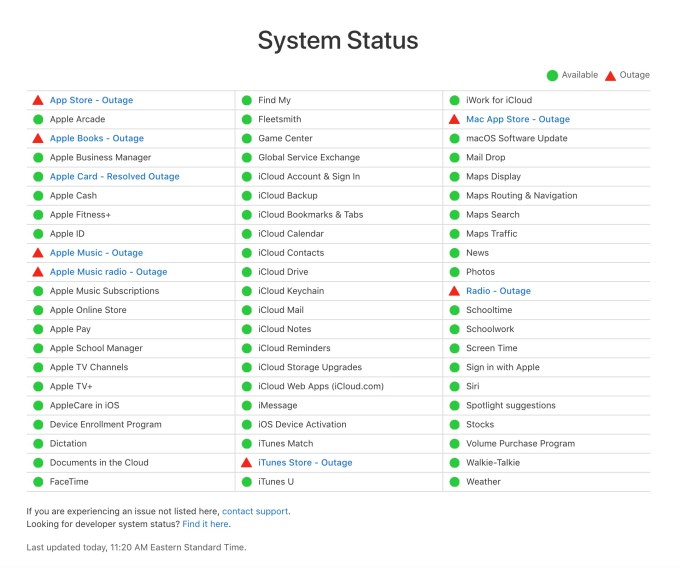
Image Credits: Apple
At the time of the initial reports, Apple’s Status page didn’t reflect these issues, as it showed all services as being available. That has since changed. Now, the page displays outages are occurring across the App Store, Apple Book, Apple Music, Apple Music Radio, iTunes Store, Mac App Store and Radio.
The Apple Support Twitter account has also posted about the outage, but has yet to provide details about what has happened or when it might be resolved.
What’s concerning is that the account replied to a tweet with a complaint from a user who said they couldn’t reset their password — an indication that the outages could be impacting other types of backend services, as well.
Apple says it’s working to provide us with more information on this, and we’ll update when the company has more to share.
Update, 12:38 PM ET: The status page shows the outages as resolved.
Powered by WPeMatico
Landed, a startup aiming to improve the hiring process for hourly employers and job applicants, is officially launching its mobile app today. It’s also announcing that it has raised $1.4 million in seed funding.
Founder and CEO Vivian Wang said that the app works by asking applicants to fill out a profile with information like work experience and shift availability, as well as recording videos that answer basic common interview questions. It then uses artificial intelligence to analyze those responses across 50 traits such as communication skills and body language, then matches them up with job listings from employers.
Landed has been in beta testing since March of last year — yes, right as COVID-19 was hitting the United States. Wang acknowledged that this was bad news for some of the startup’s potential customers, but she said businesses like grocery stores and fast food restaurants needed the product more than ever.
“That’s why we continuously grew through 2020,” she said.
After all, Landed allowed those businesses to continue hiring without having to conduct large group interviews in person. Even beyond health concerns, she said managers struggle with rapid turnover in these positions (something Wang saw herself during her time on the corporate team at Gap, Inc.) and with a hiring process that’s usually “only a small part of their job.” So Landed saves time and automates a large part of the product.

Landed CEO Vivian Wang. Image Credits: Landed
Meanwhile, Wang said job applicants benefit because they can find jobs more easily and quickly, often within a week of creating a profile. She also argued that Landed can improve on existing diversity and inclusion efforts by allowing managers to see a broader pool of candidates, and because its AI matching isn’t subject to the same unconscious biases that employers might have.
Of course, bias can also be inadvertently built into AI, but when I raised this issue, Wang pointed to Landed’s partnerships with local nonprofits to bring in underrepresented candidates, and she added, “AI can be scary when there are no human checks in place. We partner directly with our employers to ensure the matches that we’re sending them are the right matches, and there are calibration periods.”
Landed is free for job applicants, while it charges a monthly fee to employers, with customers already including Wendy’s, Chick-fil-A and Grocery Outlet franchisees. In fact, Grocery Outlet Ventura owner Eric Sawyer said that by using the app, he’s gone from hiring one person for every 10 interviews to hiring one person for every three interviews.
“My time spent on scheduling and performing interviews has been cut in half by utilizing the Landed app for most of my communications,” he said in a statement.
The new funding was led by Javelin Venture Partners, with participation from Y Combinator, Palm Drive Capital and various angel investors. Wang said this will allow Landed to continue expanding — the service is currently available in seven metro areas (Northern California; Southern California; Virginia Beach/Chesapeake, Virginia; Phoenix/Scottsdale, Arizona; Atlanta, Georgia; Reno, Nevada and Dallas-Ft. Worth, Texas), with a goal of tripling that number by the end of the year.
Wang added that eventually, she wants to provide other services to job applicants, such as loans (at a lower rate than payday lenders) and job training, turning Landed into a “lifestyle stability platform” that combines job stability, financial stability and educational “upskilling” for blue-collar workers.
Powered by WPeMatico
In addition to AirPlay support for Fitness+, today’s iOS 14.5 developer beta is bringing some key new features to mobile operating system. At the top of the list is undoubtedly Apple Watch unlock for users wearing face coverings.
The long-awaited feature arrives a year or so into a pandemic that has made face masks a reality in parts of the world that previously had not seen wide scale adoption. The Apple Watch has, of course, long had the ability to unlock Macs, so this integration seems like a pretty sensible addition.
Starting with iOS 14.5, Apple Watch wearers will be able to opt-in to iPhone unlock under the phone’s Face ID & Passcode settings. Once enabled, the Watch will give a haptic buzz to notify the wearer that the handset has been unlocked. The Watch needs to be unlocked, on a wrist and in close proximity to the iPhone in order to work.
It beats having to pull your mask down in public (even if some folks are still feeling nostalgic for Touch ID).
The addition should be included in the consumer version of the software when it launches. Also included are the ability to ask Siri to call emergency contacts and app tracking controls that require permissions from developers. Support for new Xbox and PlayStation game controllers has been added, as well.
Powered by WPeMatico
Welcome back to This Week in Apps, the weekly TechCrunch series that recaps the latest in mobile OS news, mobile applications and the overall app economy.
The app industry continues to grow, with a record 218 billion downloads and $143 billion in global consumer spend in 2020. Consumers last year also spent 3.5 trillion minutes using apps on Android devices alone.
And in the U.S., app usage surged ahead of the time spent watching live TV. Currently, the average American watches 3.7 hours of live TV per day, but now spends four hours per day on their mobile devices.
Apps aren’t just a way to pass idle hours — they’re also a big business. In 2019, mobile-first companies had a combined $544 billion valuation, 6.5x higher than those without a mobile focus. In 2020, investors poured $73 billion in capital into mobile companies — a figure that’s up 27% year-over-year.
This week, we’re taking a look at the biggest news in the world of apps, including how the GameStop frenzy impacted trading apps, as well as how Apple’s privacy changes are taking shape in 2021, and more.

Image Credits: TechCrunch
Was there really any other app news story this week, beside the GameStop short squeeze? That a group of Reddit users took on the hedge funds was the stuff of legends, even if the reality was that Wall Street likely got in on both sides of the trade. Whether you found yourself in the camp of admiring the spectacle or watching the train wreck in horror (or both), what we witnessed — at long last, I suppose — was the internet coming for the stock market. The GameStop frenzy upended the status quo; it rattled the traditional ways of doing things — much like what the internet has done to almost everything else it touches — whether that’s publishing, media, creation, politics, and more.
“This is community,” explained Reddit founder Alexis Ohanian, in an interview on AOC’s Twitch channel on Thursday.
“This is something that spans platforms and the internet, especially in the last 10 years — in particular social media and smartphone ubiquity. All these things have connected us in real-time ways to organize around ideas, around concepts,” he continued. “We seek out those communities. We seek out that sense of identity. We seek out that sense of connection. And the internet supercharges it because of scale,” he said. “I think one of the byproducts of where I think it continues to go is more of a push towards decentralization and more of a push toward individuals being able to take ownership — even individuals being able to get access — to do the same things that institutions, historically, had a monopoly on,” Ohanian noted.
Trading app Robinhood and social app Reddit, home to the WallStreetBets forum driving the GameStop push, immediately benefitted from the community-driven effort to squeeze the hedge funds — and jumped to the top of the App Store.
But Robinhood’s subsequent failure to be transparent as to why it was forced to stop customers from buying the “meme” stocks, like GameStop and others (it needed more cash), quickly damaged its reputation. Some investors have now sued for their losses. Others started petitions. And even more began downranking the app with one-star reviews, which Google then removed.
Other trading apps have gained not only during the frenzy itself, but also after, as Robinhood users looked for alternative platforms after being burned by the free trading app.
As of Friday, Robinhood remained at No. 1 on the App Store, but is now being closely trailed on the Top Free iPhone apps chart by No. 2 Webull, No. 6 Fidelity, No. 7 Cash App, No. 12 TD Ameritrade and No. 15 E*TRADE, among others.
Crypto apps are also topping the charts, as users realize the potential of collective action in markets not yet dominated by the billionaires. Coinbase popped to No. 4, while Binance-run apps were at No. 9 and No. 19, Voyager was No. 23 and Kraken No. 24.
In addition, forums where traders can join communities are also continuing to do well, with Reddit at No. 3, Discord at No. 14 and Telegram at No. 28, as of the time of writing.

Image Credits: Jaap Arriens/NurPhoto via Getty Images
Google failed to meet its earlier promised deadline of rolling out privacy labels to its nearly 100-some iOS apps. Its initial estimate followed suggestions (aided by Apple’s typical quiet confirmations to press), that Google had been struggling over how to handle the privacy issues the updates would reveal. This week, Google again said its labels were on the way. But now, it’s not making any specific promises about when those labels would arrive. Instead, the company just said the labels would roll out as Google updated its iOS apps with new features and bug fixes, rather than rolling out the labels to all its apps at once.
However, some Google apps have been updated, including Play Movies & TV, Google Translate, Fiber TV, Fiber, Google Stadia, Google Authenticator, Google Classroom, Smart Lock, Motion Stills, Onduo for Diabetes, Wear OS by Google and Project Baseline — but not Google’s main apps like Search, YouTube, Maps, Gmail or its other productivity apps.

Image Credits: Apple (livestream)
Apple announced this week its tracking restrictions for iOS apps are nearing arrival. The changes had initially been pushed back to give developers more time to make updates, but will now arrive in “early spring.”
Once live, the previous opt-out model for sharing your Identifier for Advertisers (IDFA) will change to an opt-in model, meaning developers will have to ask users’ permission to track them. Most users will likely say “no,” and be annoyed by the request. Users will also be able to adjust IDFA sharing in Settings on a per-app basis, or on all apps at once.
Facebook has already been warning investors of the ad revenue hit that will result from these changes, which it expects to see in the first quarter earnings. It may also be preparing a lawsuit. Google, meanwhile, said it would be adopting Apple’s SKAdNetwork framework and providing feedback to Apple about its potential improvements.
For years, Apple has been laying the groundwork to establish itself as the company that cares about consumer privacy. And it’s certainly true that no other large tech company has yet to give users this much power to fight back against being tracked around the web and inside apps.
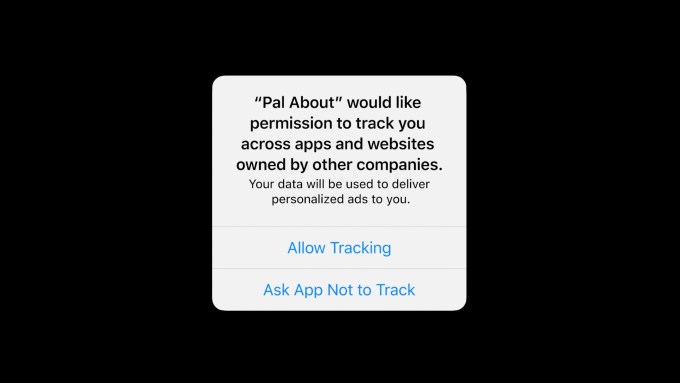
But this is not a case of Apple being the “good guy” while everyone else is “bad” — because the multi-billion-dollar ad industry is not that simple. With a change to its software, Apple has effectively carved out a seat at the table for its own benefit.
What many don’t realize is that Apple watches what its users do across its own platform, inside a number of its first-party apps — including in Apple Music, Apple TV, Apple Books, Apple News and the App Store. It then uses that first-party data to personalize the ads it displays in Apple News, Stocks and the App Store.
So while other businesses are tracking users around the web and apps to gain data that lets them better personalize ads at scale, Apple only tracks users inside its own apps and services. (But there sure are a lot of them! And Apple keeps launching new ones, too.)
With the new limits that impact the effectiveness of ads outside of Apple’s ecosystem, advertisers who need to reach a potential customer — say, with an app recommendation — will need to throw more money into Apple-delivered advertising instead. This is because Apple’s ads will be capable of making those more targeted, personalized and, therefore, more effective recommendations.
Apple says it will play by the same rules that it’s asking other developers to abide by. Meaning, if its apps want to track you, they’ll ask. But most of its apps do not “track” using IDFA. Meanwhile, if users want to turn off personalized ads using Apple’s first-party data, that’s a different setting. (Settings –> Privacy –> scroll to bottom –> Apple Advertising –> toggle off Personalized Ads). And no, you won’t be shown a pop-up asking you if that’s a setting you want on or off.
Apple, having masterfully made its case as the privacy-focused company — because wow, isn’t adtech gross? — is now just laying it on. Apple CEO Tim Cook this week blamed the adtech industry for the growth in online extremism, violent incitement (e.g. at the U.S. Capitol) and growing belief in conspiracies, saying companies (cough, Facebook) optimized for engagement and data collection, no matter the damage to society.
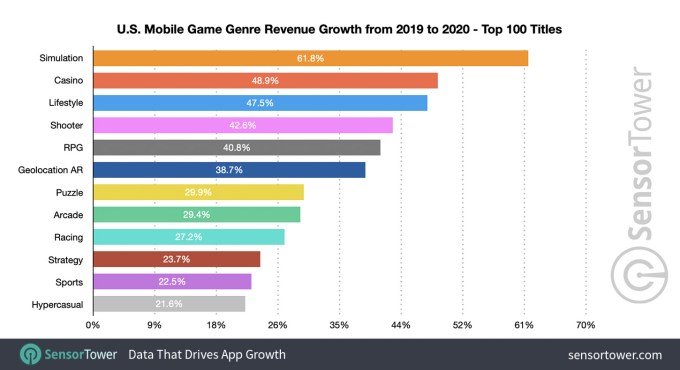
Image Credits: Sensor Tower

Image Credits: Telegram
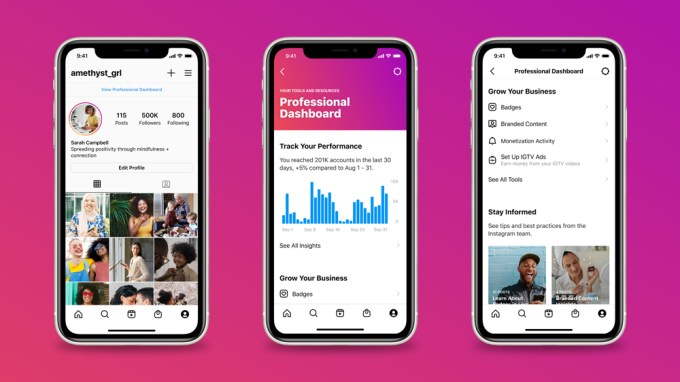
Image Credits: Instagram
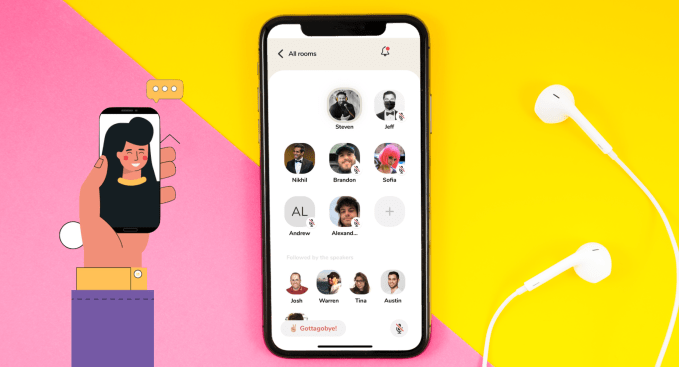
Image Credits: Freepik / Kristina Astakhova (opens in a new window) / Getty Images
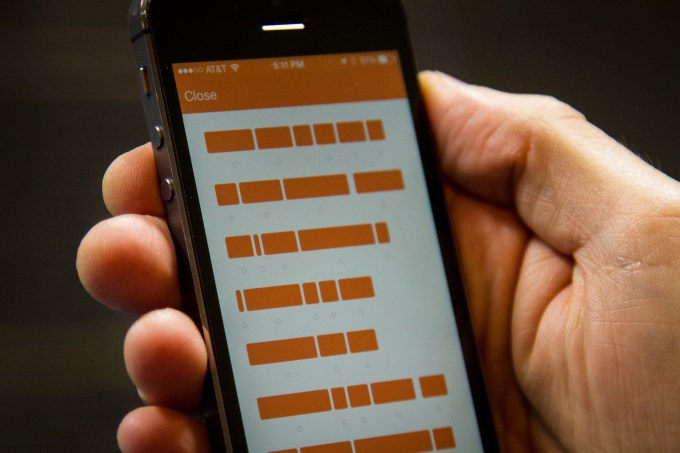
Image Credits: Confide

Image Credits: Opal
Opal offers a digital well-being assistant for iPhone that allows you to block distracting websites and apps, set schedules around app usage, lock down apps for stricter and more focused quiet periods and more. The service works by way of a VPN system that limits your access to apps and sites. But unlike some VPNs on the market, Opal is committed to not collecting any personal data on its users or their private browsing data. Instead, its business model is based on paid subscriptions, not selling user data, it says. The freemium service lets you upgrade to its full feature set for $59.99/year.
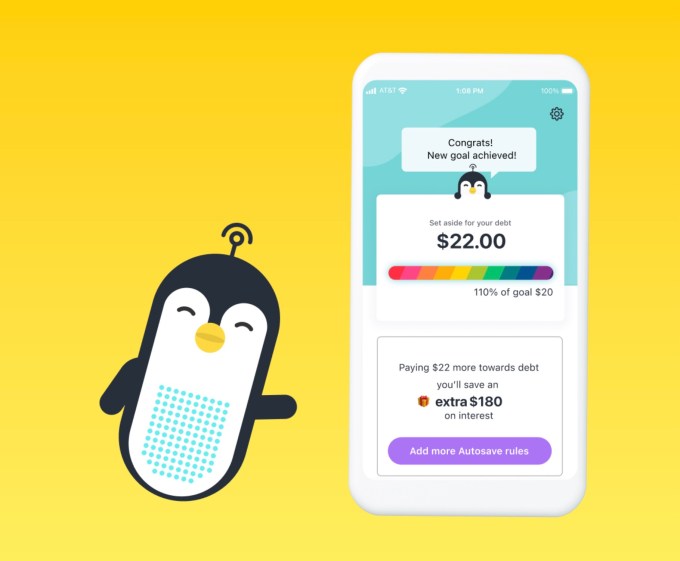
Image Credits: Charlie
Founded by a former mobile game industry vet, Charlie “gamifies” getting out of debt using techniques that worked in gaming, like progress bars, fun auto-save rules that can be triggered by almost any activity, celebrations with confetti and more. The app plans to expand into a fuller fintech product in time to help users refinance debt at a lower rate and bill pay directly from the app.
Powered by WPeMatico